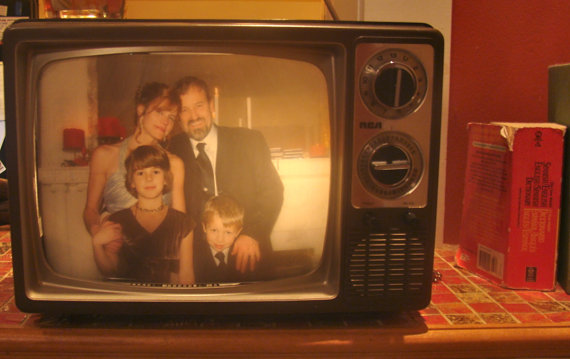I was a slow, picky and defiant eater growing up (unless it was Spaghetti-Os or pizza) and spent most nights after dinner alone at the kitchen table after the rest of my family had sauntered off to the other parts of the house to read or watch television. I sat there staring into my cold food, praying it would disappear. These were the nights I would dream up stories, invent characters, and do my impersonations of regional accents from different countries. I’d trace my fingers over my “map of The United States” placemat and sing to myself, intermittently gazing down the dark hallway with the light at its distant end (the light in the living room at the other end of the house). That was all the case, except for Thursday nights. Thursday nights were an entirely different ball game. I would gobble my food up while wincing, trying not to taste it. On Thursday it didn’t matter what the meal was, I ate furiously in time to be able to catch The Cosby Show, to get a good spot on our weirdly speckled tweed four-seater couch. It was what every single family I knew did on Thursday evenings, and it would be unheard of for me to make plans on this day in the ‘80s. Cosby was simply what was done.
It gave us so much joy as a family — and we certainly were no strangers to raucous laughter together. This show brought our little family even tighter, a bonding experience that I look back on as perfect family nights. We were by no means a Rockwell painting but on Thursday evenings, little could go wrong. There were no tears, no anxiety about school, just laughing all around. We weren’t unique in this regard. What appeared on the screen in our living room, making it brighter, was brightening the living rooms of thousands of families across the country.
At the time of this writing, we are up to 20 women who have come forward accusing Bill Cosby of rape. What does this mean for all of us who grew up on nothing but affection for him, we ‘80s kids for whom he is the TV version of the small village priest, beloved by all, one day found out to be a rampant molester? It is shocking, confusing, and humiliating. In this way, it also brings up a critical point that needs to be addressed during this great time of discourse on sexual assault: The majority of rape is committed by someone the victim knows, often a figure of love.
Most rapes in the United States occur in the family, circles of friends, or other spaces where trust has been established. This means something significant for how we collectively hear and process allegations of sexual assault. To put it bluntly, America’s love affair with nostalgia and blind trust of our famed idols has to end. All celebrities are human beings, and all human beings are capable of criminal behavior, just like fathers and uncles and priests. Cosby was our TV dad. He is and was also a rapist. This incongruous identity is not something that should be shocking, however; it should be what we see as the norm, because it is the norm. Until we make our culture safe for victims to speak out — rather than immediately believing in a completely fake, wholly good version of celebrities and powerful family figures, alike — we will continue to protect perpetrators not only from punishment, but in doing so, leave them free to find more victims.
Without sounding like Olivia Benson in an episode of SVU – please – let’s face reality, the humanity of our TV stars, of all of our famous people: that an artistic genius and a serial rapist can be the same person. Believe this, so that you can believe the twenty women who have come out against Cosby. Legally, the statute of limitations may have expired for them, but let’s give them at least the dignity they deserve by daring to put our beloved TV dad, the made-up character, where he belongs: in our memories.
Image: Etsy









